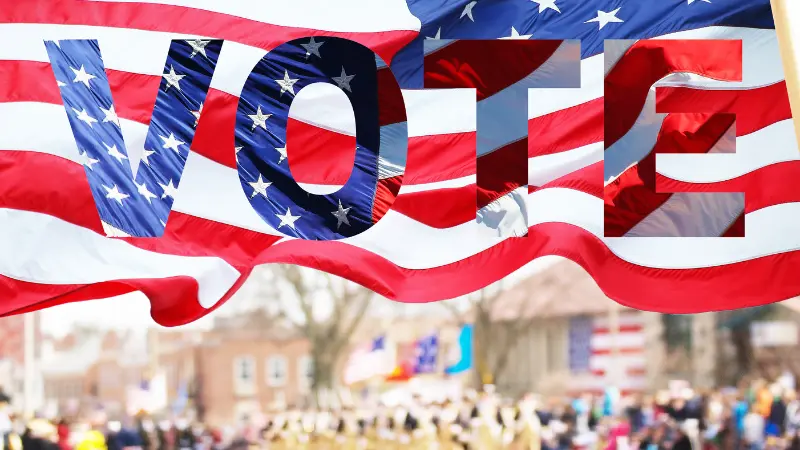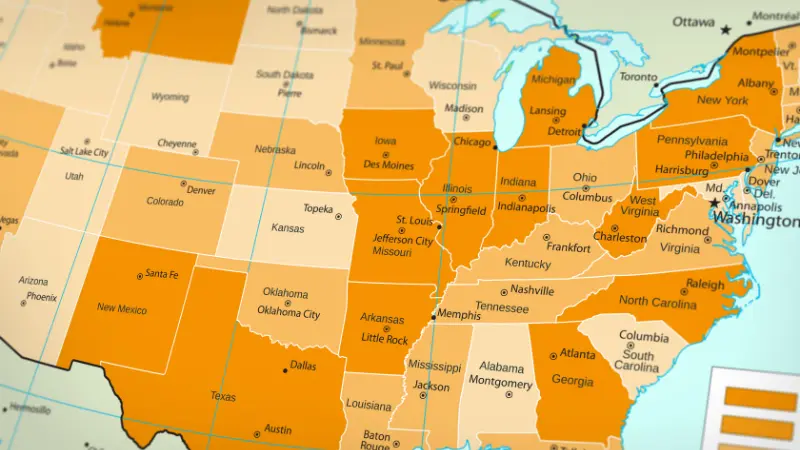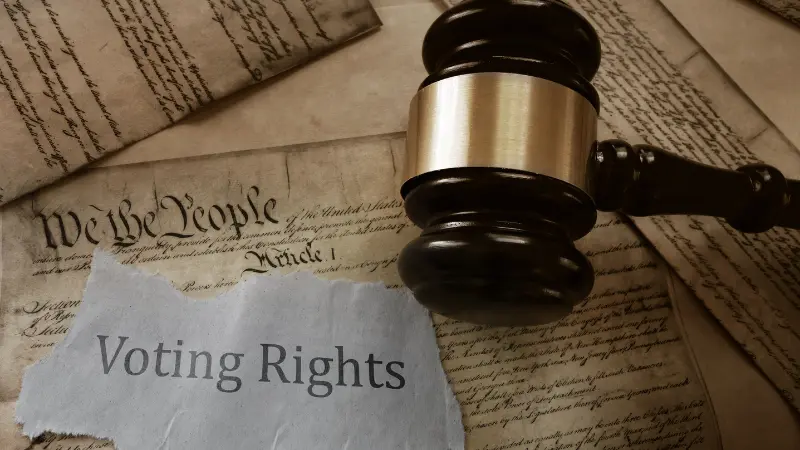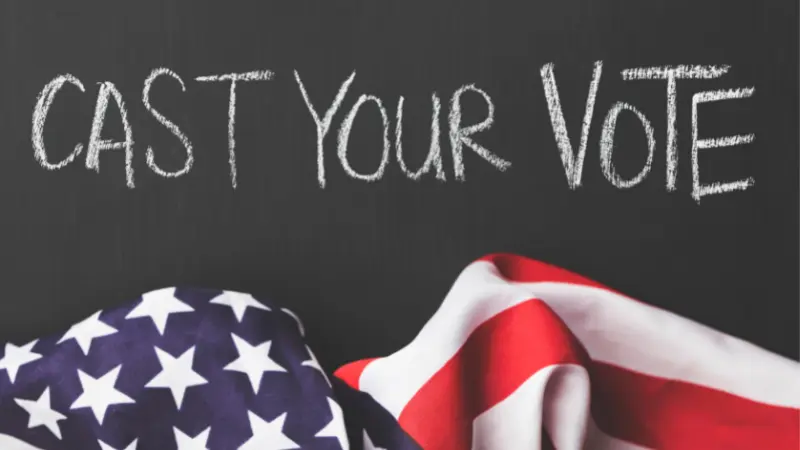Can felons vote? If you have a record, and still want a say in who will represent you, this thought has most likely crossed your mind. I have some good news and bad news. You can still vote or not. It depends mainly on which state you reside in. Stay with me while I explain and break it down to the point that hopefully, all your questions are attended to.
Can Felons Vote?

The actual levity of the crime determines the degree of disenfranchisement as they also vary between jurisdictions. In some jurisdictions, the disfranchisement is permanent, while in others the person’s right to vote is only suspended and returned after they have served their sentence, or completed their parole.
This adds to the weight of having a record, a mistake or situation out of your control, or that one action can cost you for the rest of your life. It was reported in 2016, that about 6.1 million individuals were disenfranchised on account of a conviction, about 2.47% of voting-age citizens. Also, in October 2020, it was estimated that about 5.1 million US citizens of voting age were disenfranchised during the 2020 presidential election on account of a felony conviction.
They argue that by committing felonies or breaking the law; they have broken the social contract, and as such have given up their right to be part of a civil society. It is after all poor decision-making that got them into prison, so their having a say in the political decision-making process would also reflect that.
This system has a lopsided and somewhat nonuniform verdict. This is because it is the state that gets to decide if a felony conviction determines if a felon can vote, not the federal government. This can cause a constant change as the law remains in flux as it is not federal law. An example of this lopsided state determining felony disenfranchisement is
A person can be convicted of first-degree murder in the state of Vermont, and (s)he will retain the right to vote, even while in prison. But an individual who commits perjury in Mississippi could permanently be prohibited from voting.
What is Felony disenfranchisement?
Felony disenfranchisement can be defined as the denial or suspension of voting rights of citizens due to a felony conviction. In other words, being charged and arrested for a criminal offense. Interesting though that the system went from passing laws preventing certain demography from voting in colonial times to preventing those with criminal records from voting after constitutional amendments granted the right to vote to Black people.
Read: Work From Home Jobs
States Can A Felon Vote In

I will do my best to compile a list showing a few of the states and what side they lean toward concerning felony voting… at least till it changes.
In states like Mississippi, Alabama, and Tennessee, under current law, individuals convicted of murder, or rape are not allowed to vote for the rest of their lives unless for special cases, like a situation where they get a pardon.
States like Kentucky and Iowa, when felons serve their full sentences, including parole, they then have to apply to state officials to regain their voting rights.
Florida is similar, but it differs in that felons are mandated to wait for at least five years after fully serving their sentences before they can apply to vote.
In states like Nevada, Wyoming, and Delaware, felons have to apply to regain their right to vote, but it depends majorly on how severe the crime is.
In most states, felons convicted cannot vote while they are in prison, but they can after they are released; in places like Massachusetts and Hawaii, in states like Colorado and Connecticut, they regain their rights after they complete their parole, or when they are no longer on parole or probation; as in places like New Jersey and Texas.
California relaxed its rules a bit in 2016. Convicted felons sentenced to county jails can now vote while in custody, but if they are sentenced to a state or federal prison, it still prohibits them from voting.
States like Maine and Vermont, on the other hand, do not take away the voting rights of felons, even when they are still serving their term.
Some politicians have discussed plans to try to use an executive order to restore voting rights to felons on parole, essentially allowing them to vote when they have completed their parole.
For a more detailed list of the laws on felons’ voting rights in all the states, you can look up the ones gathered by procon.org for a better list.
Some good news though, states like Iowa have allowed some felons to take part in elections after they served their terms, and they are not the only ones, more states are getting on to re-enfranchising them.
Florida has amended some of their laws, except for those convicted of murder or sexual offenses. On the other side of the divide some have passed a law that requires former felons to pay their outstanding court fees before they are given the right to vote. Seems right, except for the part that the fees are large and difficult for them to pay.
Advocating For The Right To Vote

Still, advocates and activists are pushing and fighting for convicts to get back their rights, pushing on the premise that everyone should have the right to vote, as it is one of the fundamental human rights that should never be taken away from anyone. They believe that since some of it was founded on replacing slavery and marginalization, it should not be allowed to exist.
When you think of the fact that millions are constantly restricted from voting, you start to question and think about the concept of democracy and the rights of the citizens. One of the scary statistics is that in 2016, more than 6 million were prohibited from voting on the grounds of felony convictions.
The courts support and uphold the law, this makes it more of an uphill battle as the state and law support the oppression and disenfranchisement of convicts. To change this will take a lot of lobbying, convincing politicians, and getting enough buzz and interest on the matter in a way that gets the society engaged and interested, more so that they rally around and begin to push for a change.
There needs to be social awareness, a push so massive and talked about that the lawmakers have to consider changing the laws in a way that benefits everyone despite the mistakes that one may have made at one point or the other, bringing about the end of these unfair laws.
Summary

The claim and idea behind prison are to reform the convicted felon, teach them the error of their ways, and with the help of some charitable, non profit organizations that focus on reforming them and making them contributing members of society. Their actions should be reconsidered and their rights to vote returned to them. They have after all paid the price for their offense.
We can only hope more states change their stand on this issue and allow ex-felons who have served their time to vote . Till then, voting right for felons is determined by the state a felon finds his/herself.